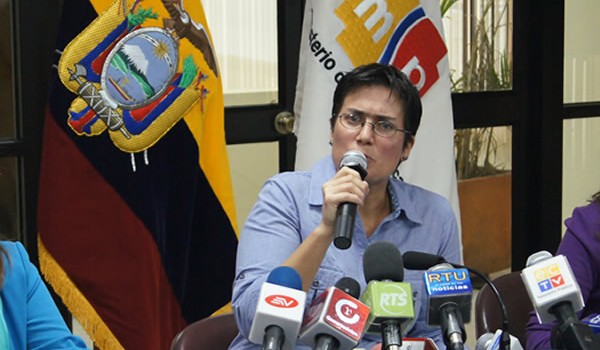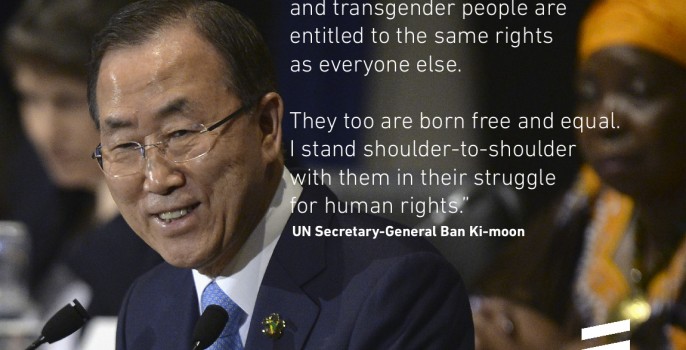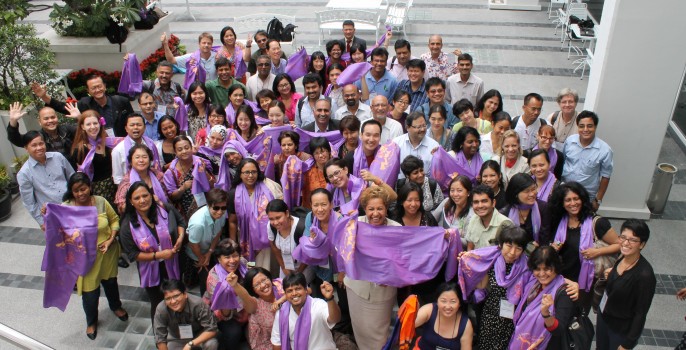Denisse Freire is the latest woman to go public about the physical and psychological abuse she endured after being forcibly interned in a ‘sexual reorientation’ clinic, operating as part of an underground network of ‘rehabilitation’ centres in Ecuador.
At 15 years of age, Freire’s mother discovered her in her bedroom with a female schoolmate. She then sent her to an Evangelical-linked ‘Christian camp’, in a remote area of the state of Guayaquil, with the aim of ‘curing’ her. There, Freire experienced extreme physical and psychological abuse, including rape and other forms of sexual assault and punishment conducted with the express aim of ridding the teenager of her attraction to women.
“I was tortured continuously… They tortured me with electric shocks, didn’t let me bathe for three days, gave me almost nothing to eat, hit me a lot, hung me by my feet… They told me it was for my own good,” she explained at an international press conference this weekend (July 28) in the Ecuadorian capital, Guayaquil.
“They told me it was for my own good”
Whilst the centre operated officially as an Evangelical Christian rehabilitation clinic for people with drug and alcohol problems, Freire advised that she was there with four other young people – all because they were gay. Freire managed to escape after two months detention at the centre. Now, aged 25, she has broken the silence around her experiences, and become the latest in a growing list of LGBT people to go on the record about this kind of abuse.
Last month, 22-year-old student Zulema Constante also managed to escape from a different clinic, based in the eastern city of Tena. In March, Constante had come out to her parents, and told them she had a girlfriend, Cinthya Rodríguez (21), whom she was moving in with. On May 17, 2013 she accepted an invitation from her parents to have lunch together to ‘make things right’.
After getting into her father’s car – a prominent local figure with significant political links – and driving 300m down the street, the car was attacked and Constante was kidnapped by five men who dragged her into an adjacent vehicle. Her father could be heard screaming ‘it’s for your own good’, as her clothes were ripped from the resistance she gave. Constante was handcuffed for the seven hour drive out of the capital.
“We are talking here about a mafia, a network that operates nationally in each of the provinces, which are violating human rights.”
When she arrived at the ‘Feminine Hope Therapeutic Unit’ (Unidad Terapéutica Femenina Esperanza) Constante was taken to the chapel and greeted by two uniformed women who explained the house rules: no escaping, no theft and no lesbianism. Psychological abuse was constant, she recalls. Constante was held in a straight jacket, made to clean toilets with her bare hands, was fed rotten food and, as a result, suffered repeat food poisoning. This aside from routine misidentification as a substance abuser, and admonitions to prayer. “I do not remember how many times I heard about the Bible and that God had made man and woman and that I had to change,” she recalled.
Unlike others held at the centre – nine, including five under-18s – Constante had her internation cut dramatically short. An online campaign spearheaded by her partner Rodríguez, as well as friends and local LGBT activists, such as Lia Burbano of the lesbian group Mujer y Mujer, publicised Constante’s disappearance, demanded her return and called on the government to hold the perpetrators accountable. The campaign quickly went viral, capitalising on recent high-profile online petitions – notably backed by Allout.org and Change.org – aimed at pressuring the Ecuadorian state to take further actions to address the prevalence of clandestine ‘conversion’ centres. After negotiations with the centre, and with her father, Constante was released on June 5, and has since become a key figure in denunication of the centres in Ecuador. Silvia Buendía, Constante’s lawyer, has filed a formal complaint with the courts and is awaiting a hearing date.
These are not isolated examples. “We have lesbians who have reported what the clinics called ‘sex therapy,’ but which consists of being raped by men… We have reports of physical attacks, the use of ice water on inmates… We are talking here about a mafia, a network that operates nationally in each of the provinces, which are violating human rights,” Ecuador’s Health Minister Carina Vance Mafla explained at an international press conference this weekend (July 28). Two people, admitted for addiction issues, died last year at the clandestine centers, she told foreign reporters.
Vance is herself openly gay, and is the former Executive Director of Fundación Causana, an Ecuadorian lesbian rights organisation which has long been at the frontlines of campaigns to close the clinics. Her appointment to the head of the Ministry, in March 2012, was interpreted by many as a signal of the current administration’s commitment to shutting them down.
Since her appointment, a total of 18 clinics have been closed for failing to meet human rights and health standards (15 for human rights violations, 3 for sanitary conditions). The ‘Feminine Hope Therapeutic Unit’ is now one of them. Nevertheless, the Ecuadorian government estimates that – of the 200 religious retreats or drug and alcohol rehabilitation centres in total which exist in the country – at least 80 remain unlicensed. And many continue to offer the sorts of illegal and abusive ‘sexual reorientation’ therapies experienced by Freire and Constante.
“This is not a struggle between parents and children. It’s a struggle against these clinics.”
One problem in closing the clinics, aside from their clandestine nature, is that the so-called ‘mafia’ which owns, supports and profits from them very often includes elected government officials – as in the case of the clinic where Constante was held. Vance also advised that Ecuadorian law permits forced treatment of an ‘addict’ if the treatment is ordered by a judge. Activist Lia Burbano notes also that many gay people are placed into these clinics by close family members, which ‘creates an emotional weight’, that may prohibit people coming to terms with conditions, and coming forward to denounce them. Burbano also points out that families are very often unaware of the inhumane treatments and conditions fostered at the centres, when sending their relatives to them: “This is not a struggle between parents and children. It’s a struggle against these clinics.”



